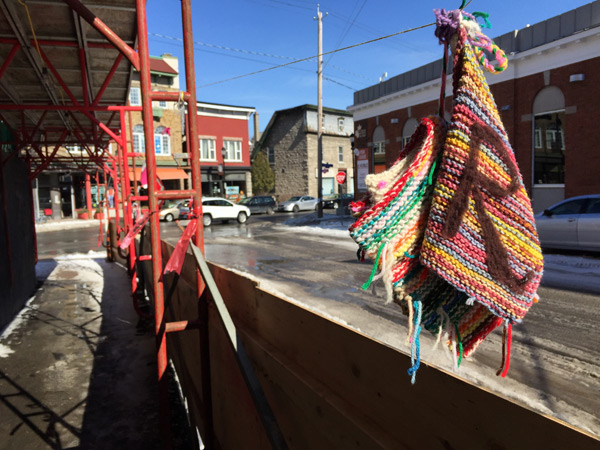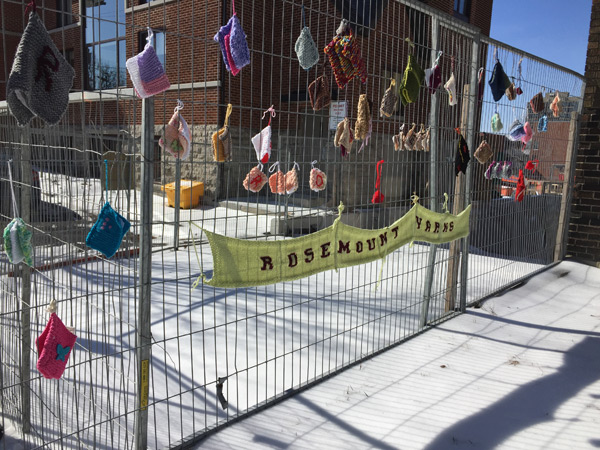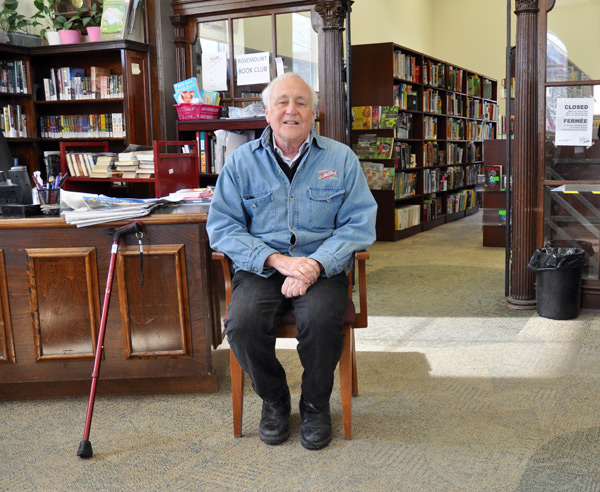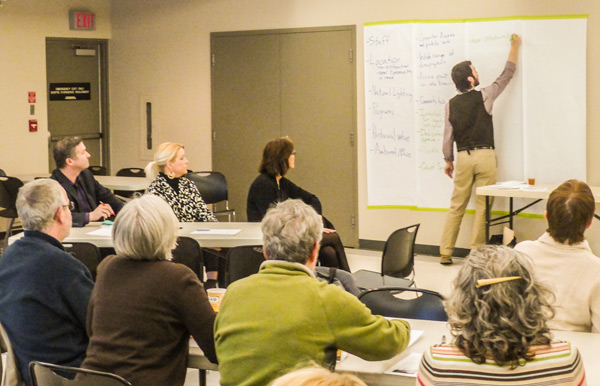By Judith van Berkom –
Two recent public consultation sessions had participants brainstorming on how best to improve Rosemount Public Library, the last Carnegie Library in the city, which has been bursting at the seams for years.
Close to Connaught School on Gladstone Avenue, and offering various programs throughout the day for small children and babies, the library also serves students after school and the public in Kitchissippi Ward. The second largest number of books in the Ottawa Public Library (OPL) system circulate through this library; readership is high as is interest in Rosemount’s redevelopment and expansion.


Andrew Carnegie* was a Scottish-American industrialist who donated over $2.5 million to Ontario public libraries (111 in total) in the early 1900s. These funds contributed significantly to the development of literacy in small communities across the province.
The OPL system, founded in 1906 with a donation from the Carnegie Foundation, included the West Library or Rosemount Public Library, now the oldest library in Ottawa still in existence in its original building and location.
“The old building is well loved, but we need more space,” explains Richard van Loon, Chair of Rosemount Expansion And Development (READ), a group of volunteers working to support the Rosemount Library.

“The underpinnings are not strong enough to support an additional storey and construction of a highrise on Richmond Road and Rosemount Avenue won’t allow for additional expansion to the north,” says Richard. “One option is to move to another location but what happens to the old building…. In the immediate future, the library board set out $1 million provisionally for improvements but this doesn’t get any expansion.”
Two public consultations took place on March 19 and 22. The goal was to evaluate the library’s current strengths and assets, develop the community’s vision for the future of the Rosemount Library, and prioritize what needs to change – including whether the library should remain in its current location.
Wesley Petite, a Carleton University PhD student currently researching how participatory budgeting models are playing out in practice in Canada and the United States, facilitated the community consultation. In 2015, he successfully adapted the model in the Reid Park consultation process.

Wesley is supported by READ and under contract with Councillor Jeff Leiper’s office – funding he describes as being paid “an amount that reflects his [Jeff Leiper’s] notable support for more community involvement.”
Several members of the Library Board, including the current CEO of the Board, Danielle McDonald, attended the introduction to the session. Between 50 and 60 people came out to the consultation on Saturday, March 19 and approximately 40 people participated on March 22.
Barbara Clubb, former Chief Librarian of the OPL, spoke briefly and arranged photographs of various renovations and rebuilds done to public libraries in Ottawa as examples for participants to draw on when formulating ideas for change.
Wesley then opened the public consultation with a general brainstorming session which highlighted issues such as the overcrowded entrance way, inadequate and cramped shelving – some of it too low, others too high, especially for an aging population – additional outlets for laptops and more quiet workspaces for study and specific programs offered at the library.
There was a strong sense that more collaboration was needed, that there was a shortage of computer terminals and no public Wi-Fi. As well as becoming a community hub, participants would like the library to offer access points to other libraries.
The formation of small discussion groups followed the brainstorming session. These groups flushed out additional ideas and expanded on solutions to existing ones. The groups reconvened as a whole and shared results from each of the small groups.
The community feedback presented at both of these initial consultations with the public will be given to the Library Board for consideration. The second round of public consultations on April 16 and 19 will respond to the Board’s feedback.
Richard, READ’s chair, is uncertain what the response of the Board will be, but found it encouraging that several Board members attended the introduction to the session. “Rosemount was identified five years ago as the library requiring the highest priority for renewal,” he explains. “Since then, four other branches which were a lower priority have been renewed.”
READ was formed out of the need for visibility and to have Rosemount Library’s needs heard and met. The final report from in-depth consultation is expected in May.
For more information about READ go to READRosemount.ca.
** A previous version of this story – printed in the March 31 edition of KT – incorrectly attributed the donation to Dale Carnegie.